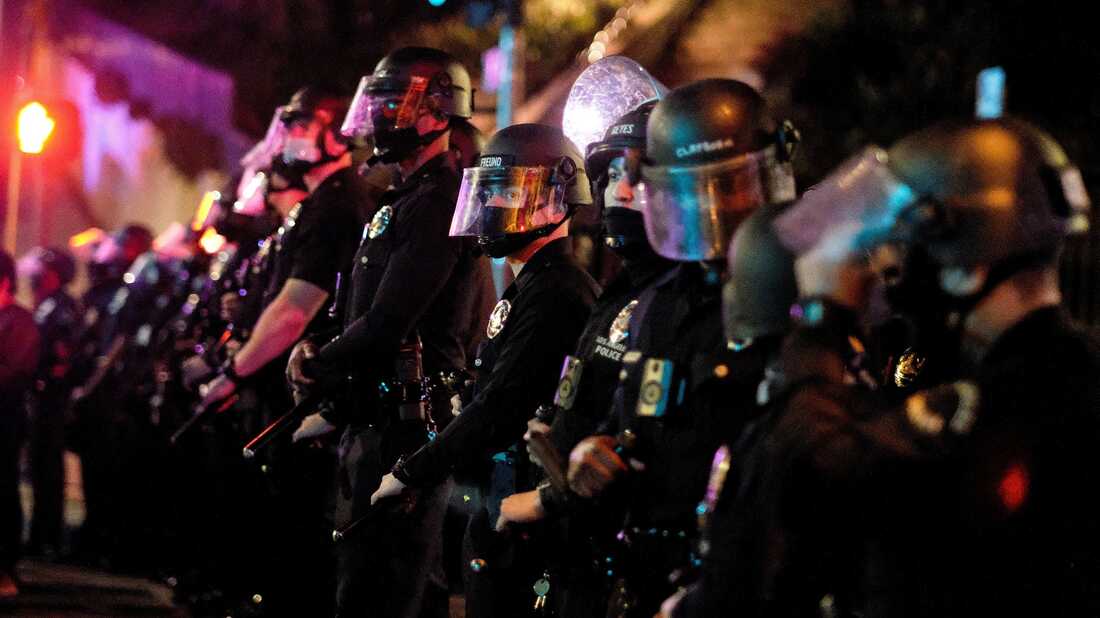
Police form a line as activists and supporters of residents of a homeless encampment protest at Echo Park Lake in Los Angeles late on March 24, 2021, ahead of a planned and announced clean-up of the encampment. Ringo Chiu/AFP via Getty Images hide caption

Police form a line as activists and supporters of residents of a homeless encampment protest at Echo Park Lake in Los Angeles late on March 24, 2021, ahead of a planned and announced clean-up of the encampment.
Ringo Chiu/AFP via Getty ImagesOver the past two years, about 200 journalists across the country have been detained or arrested while on the job. Many were covering the social and racial justice protests that began after the murder of George Floyd by police officer Derek Chauvin in Minneapolis.
NPR Media Correspondent David Folkenflik and NPR producer Marc Rivers look at the growing tension between police and the press through the lens of one March 2021 night at Echo Park Lake, when police detained at least 16 journalists.
Email us at
This episode was produced by Mallory Yu and Marc Rivers. It was edited by Ashley Brown and Emily Kopp. Our executive producer is Cara Tallo.

 Live Radio
Live Radio